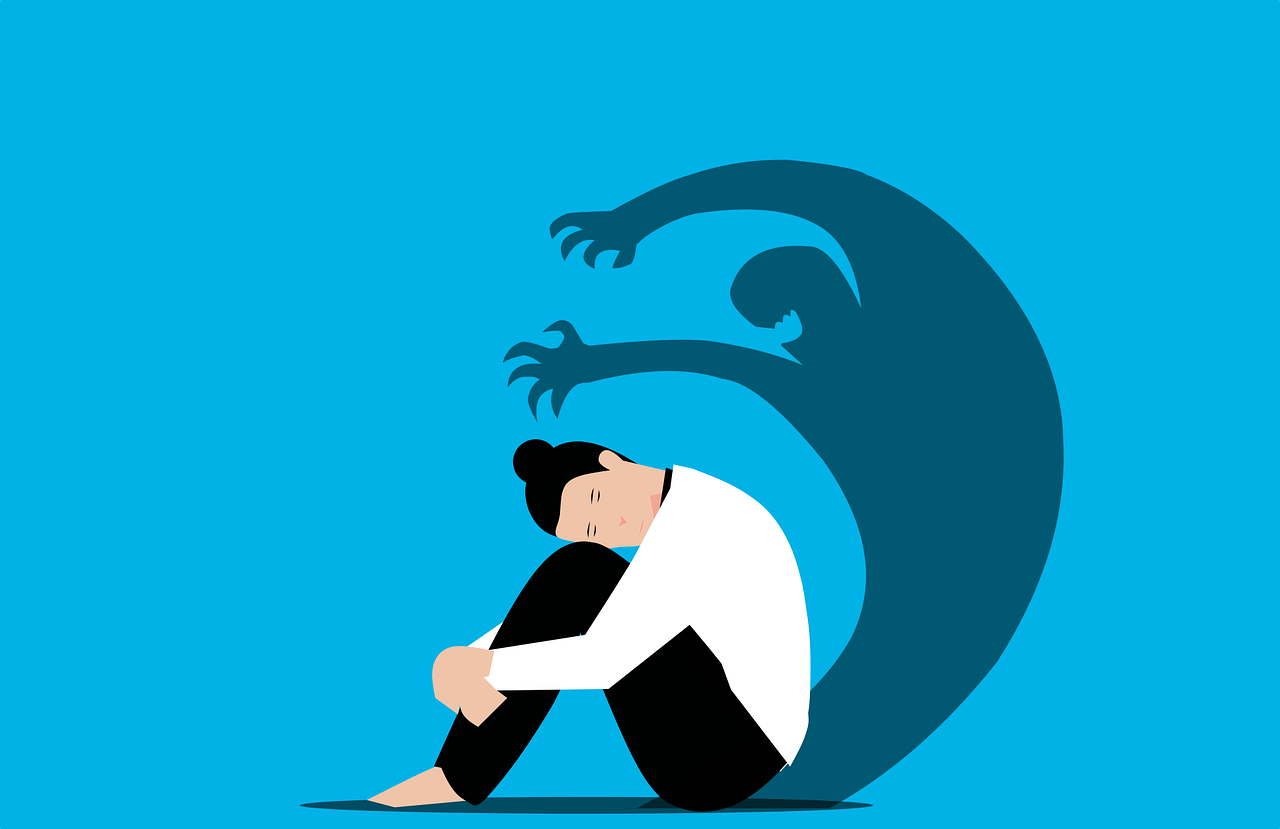Anxiety can negatively impact a person’s ability to communicate their feelings to others and establish valuable relationships. Luckily, you can learn how to deal with anxiety by discovering the most effective treatments and techniques.
Although this condition causes a lot of stress, panic, and behavior shifts, it isn’t impossible to cope with. Believe it or not, you can manage the effects of anxiety attacks and live a healthy and fulfilled life again.
There’s no need to feel hopeless anymore. You have the strength to recover fully, fighting the fear you experience. Rely on effective breathing techniques, cognitive, structured problem-solving, exposure therapy, and the difference some lifestyle and behavior changes can make.
What Are The Symptoms of Anxiety?
Many reasons can cause stress and anxiety. But, this condition is not always easy to recognize. It may often be confused for occasional stress due to work-related pressure or unexpected danger. Thus, the discovery of the proper anxiety treatment may be delayed and difficult.
Here are the most common anxiety symptoms to help you identify when you or someone around you struggles with an anxiety disorder:
- Physical symptoms: irregular heartbeat, lightheadedness, excessive sweating, and trembling.
- Mental symptoms: nervousness, increased stress, experiencing fear, inability to concentrate, recurring traumatic memories, and insomnia.
- Behavior changes: difficulty communicating, compulsiveness, and constant frustration.
Effective Anxiety Management Techniques
Discovering how to deal with anxiety will help you act quickly and effectively. You can suggest some proven-to-work techniques in case you or someone you love experiences anxiety attacks and frequent fear in everyday situations.
During this discovery process, you must also learn how to manage anxiety. This way, you see how people in distressing conditions act and what works best to help them feel better and free of negative thoughts.
Every anxiety treatment explained below focuses on dealing with different aspects of this condition. So, take a look at the effectiveness each provides before choosing the right one:
Relaxation and Breathing Exercises
When a person experiences anxiety attacks, the best thing to do is find a way to relax. This can be difficult due to the muscle tenseness one may feel during this condition. However, here are some exercises that can help:
- Isometric Relaxing: One of the most effective exercises for dealing with anxiety involves isometric relaxation. They start by taking small breaths and stretching your arm or leg muscles. After a few seconds, release your muscle tension and relax.
- Progressive Muscle Relaxation: These exercises require the individual to position themselves lying down or sitting straight. They involve gradually tensing and relaxing separate muscle groups, including lower body extremities, face, abdomen, and chest.
- Abdominal Breathing Techniques: If you want to work on breathing, find a comfortable space and sit down. With one hand on your chest and the other on your abdomen, focus on expanding your abdomen when you breathe in. This is to help you breathe from your diaphragm rather than your chest, resulting in slower, more regulated breathing.
Cognitive Therapy
Overthinking is very common for anxious people. They often think they are not good enough or struggle to understand why someone has changed their attitude towards them. In such cases, cognitive therapy works on identifying common triggers and preventing negative thoughts.
This therapy can help you think more rationally and separate your beliefs from reality. It focuses on changing how one speaks to themselves, aiming to make the anxious person feel more aware of the things happening around them instead of making up false scenarios in their head.
Structured Problem-Solving Therapy
Anxious people tend to worry too much about problems they might be facing instead of focusing on resolving them. In these cases, structured problem-solving therapy can help anxiety sufferers learn how to deal with issues step by step.
This therapy starts with identifying the major problems individuals with anxiety face. Then, it teaches them how to deal with anxiety problems by resolving each one individually until all the pieces fit into place and start making logical sense.

Exposure Therapy
Facing your fears is the most challenging aspect of learning how to deal with anxiety. For many people, this is the hardest pill to swallow because they are scared of experiencing a feeling of terror. The good news is that the sense of danger will fade if you practice confrontation through exposure therapy.
Expose yourself to your fears by identifying the least threatening ones and figuring out what aspects of them scare you the most. Then, see if some breathing and relaxation techniques make you less anxious and repeat “I am not scared”.
Do this until you realize nothing bad happens at the end of each exposure. After some time, start working on confronting the fears that seem most threatening, exposing the things, activities, or circumstances that cause you anxiety. By this point, you will realize that avoiding your problems is not the way out – challenging them is.
Regulated Vitamin and Mineral Intake
What you put in your body also affects your anxiety levels. If your muscles feel tense, you should prioritize taking magnesium to relax. Also, you should avoid processed foods and eat plenty of fresh, vitamin-packed green vegetables to help you feel physically better.
Increased Physical Activity
Physical movement can help you distract yourself from the built-up negativity that is causing you anxiety. It can also burn stress chemicals to help your body relax. So, get outside two to three times a week and witness how regular exercise manages anxiety.
Additional Tips for Dealing with Anxiety
Besides the therapist-approved techniques that teach you how to deal with anxiety, there are also some things you can do on your own to control your condition. If you keep the following tips in mind, you will likely master anxiety management quickly and efficiently:
Learn about your condition
The more you know about your condition, the better you will manage it. If you understand exactly what causes your anxiety attacks and fear, finding effective treatment options will be easier.
Identifying proper anxiety-management strategies is tricky if you don’t know how recovery works. It begins by identifying your triggers, trying different coping techniques, and discovering which works best for your unique condition.
Thus, educate yourself about the power of mindfulness and learn practices to manage your anxiety-provoking feelings. This way, you will take control of the symptoms and slowly learn how to manage anxiety.
Work on your self-confidence
Anxiety sometimes occurs due to low self-esteem and fear of what others may think about you. The feeling of worthlessness comes from thinking you are constantly judged about your looks, opinions, or behavior.
However, when you start thinking more positively of yourself, your self-confidence goes up. Stop focusing on other people’s views because most of the time, they are nonexistent. You create them in your mind and invite the anxiety in.
You can release dopamine through exercise, avoid comparison with others, and surround yourself with supportive and positive people. This way, you will be free from the thoughts of shame and the need for isolation.
Stay consistent with your treatment plan
Although psychological treatments like cognitive, structured problem-solving, and exposure therapy are effective, some choose to manage anxiety with assignments and medication. If your therapist gives you medication or breathing exercises, ensure you follow the directions.
Improve your communication skills
As we already mentioned, people suffering from anxiety have problems with confrontation. But this doesn’t only apply to the fear of facing their triggers. They also avoid communicating with other people because they dread causing a conflict or a misunderstanding.
However, you can communicate your feelings and thoughts to others by learning about assertiveness. This strategy teaches you how to deal with anxiety and stress by standing up for yourself while also respecting others.

Find a supportive community
The most important thing to remember when managing anxiety is that no one is alone. Support groups make you feel like you belong in a place where comfort is always guaranteed.
People need people and no one should be left to deal with constant fear and anxiety alone. If you or someone you know exhibits anxiety-like symptoms, don’t hesitate to look for communities providing valuable education and support.
If you want to know how to help anxiety-affected individuals around you, introduce them to such support groups and give them a sense of security they may be currently lacking. But, if you are the one who would gladly use the aid of these communities, it’s never too late to ask for help!




